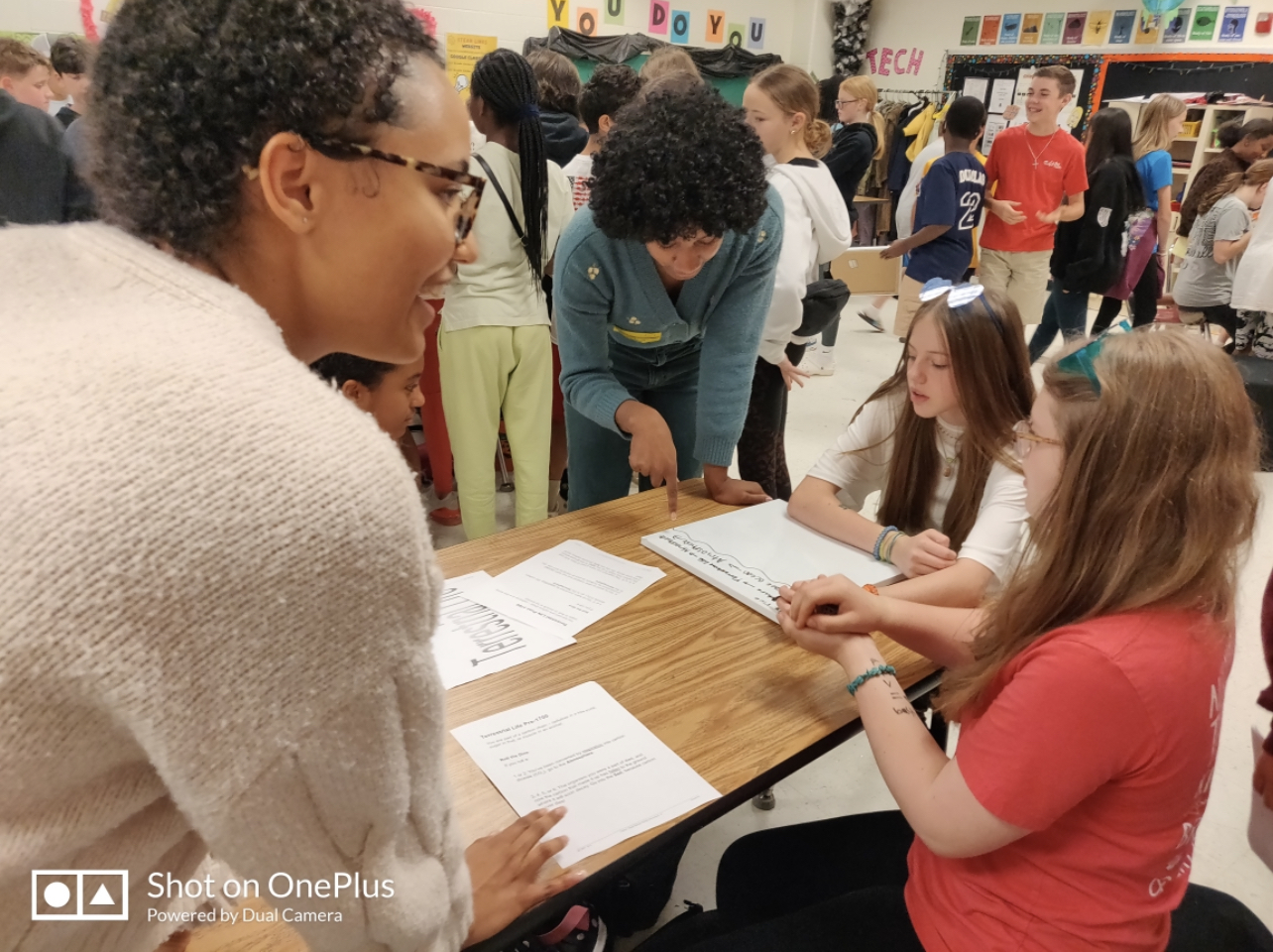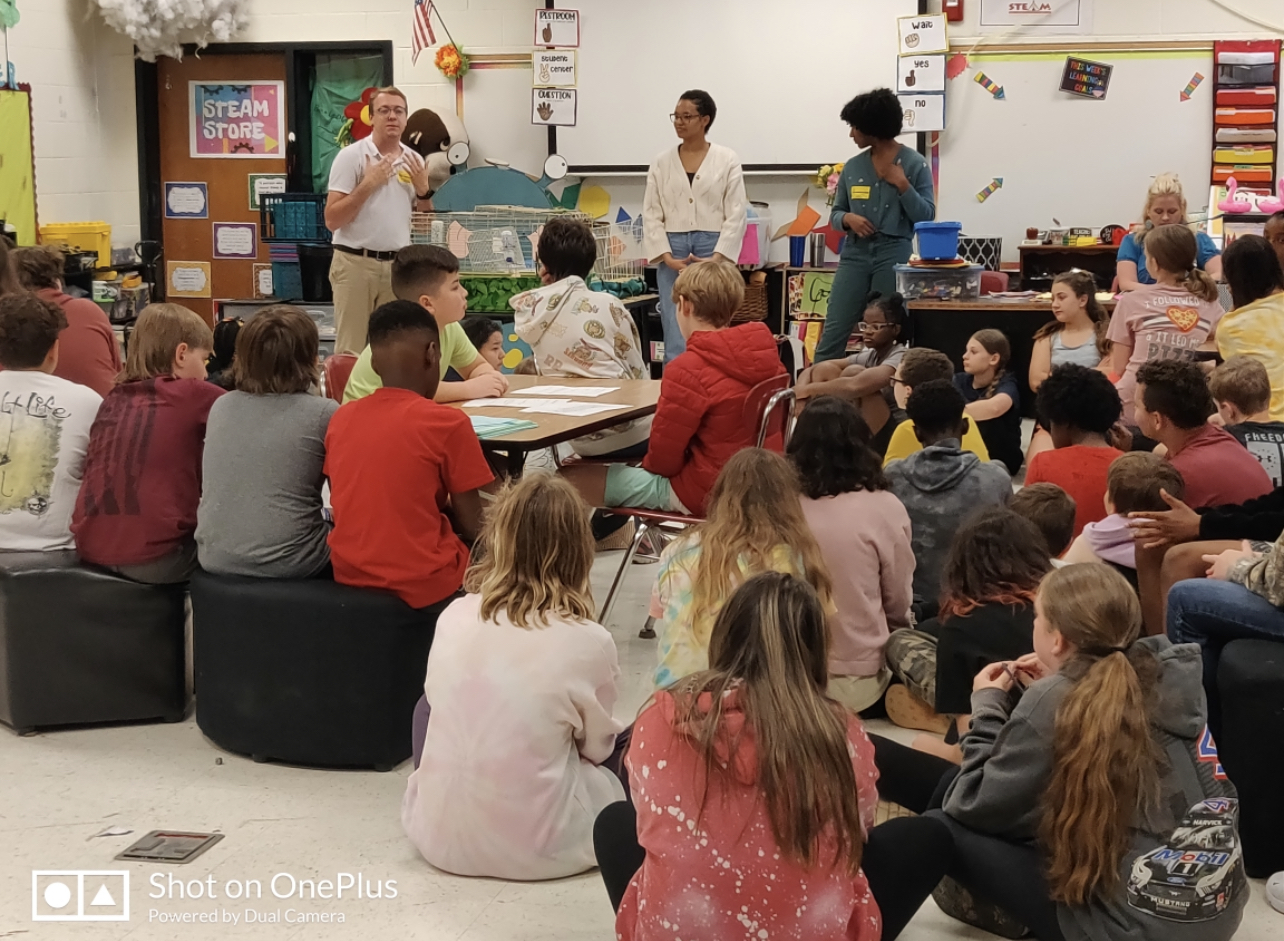In a world grappling with climate change, it is crucial that the younger generations are educated on the processes that regulate and sustain life on Earth. During the third week of May, Center for Sustainable Communities in partnership with The Ray, Georgia Space Grant Consortium, conducted STEM outreach at both Montessori and Creekside School in middle Georgia, involving close to 300 students. The two days activities were facilitated by a representative of The Ray, two interns from Center for Sustainable Communities (CSC), alongside CSC founder Garry Harris.
 With the aid of interactive presentations and visually captivating materials, middle school students began to unravel the mysteries of the carbon cycle. The sessions commenced with a brief introduction, capturing their attention, and piquing their curiosity about this crucial ecological process. The students eagerly absorbed new concepts, connecting the dots between the carbon cycle and their daily lives.
With the aid of interactive presentations and visually captivating materials, middle school students began to unravel the mysteries of the carbon cycle. The sessions commenced with a brief introduction, capturing their attention, and piquing their curiosity about this crucial ecological process. The students eagerly absorbed new concepts, connecting the dots between the carbon cycle and their daily lives.
The students were then engaged in a hands-on activity, where they walked around the classroom to “stations” that represented different stages of the carbon cycle. Students were asked to contrast the differences in the carbon cycle before and after the industrial revolution. They conducted this activity in multiple rounds and deepened their understanding of the carbon cycle. In a group discussion, students were able to observe the role of plants in absorbing carbon dioxide through photosynthesis, ocean-atmosphere exchange, decomposition, respiration, carbon fixation, and so on. The students documented their observations and eagerly discussed their findings, fostering an environment of active learning and collaboration.
Throughout the session, the focus was not solely on theoretical knowledge but also on instilling a sense of responsibility towards the environment and future generations. Discussions on sustainable practices sparked thoughtful conversations among the students. They eagerly brainstormed ideas on reducing their carbon footprint, conserving resources, and protecting the planet's delicate balance. One student eagerly shared, “If we know what the problem [climate change] is, we should know how to fix it.”
The sixth graders that participated in the day’s activities, were all already a part of STEM programs in their schools. Towards the end of the activities, students were asked to share what future career interests they had, and as an exercise, they connected those future aspirations back to concepts of sustainability, environmental justice, and community health.
The students had an overwhelming enthusiasm and newfound awareness of the carbon cycle. Their genuine desire to protect the environment and make a positive impact on the world was the goal of the partnership between Center for Sustainable Communities, Georgia Space Consortium, and The Ray. All these organizations aim to advance sustainability, promote environmental responsibility, and create cleaner and greener communities. In closing, it was an opportunity to nurture a generation of eco-conscious individuals who understand the importance of environmental stewardship.
